Life
Sign up for our newsletter
We summarize the week's scientific breakthroughs every Thursday.
-
 Health & Medicine
Health & MedicineFDA has approved the first ketamine-based antidepressant
A nasal spray with a ketamine-based drug promises faster relief from depression for some people.
-
 Oceans
OceansTiny bits of iron may explain why some icebergs are green
Scientists originally thought the green hue of some icebergs came from carbon particles. Instead, iron oxides may color the ice.
By Jeremy Rehm -
 Life
LifeThis spider slingshots itself at extreme speeds to catch prey
By winding up its web like a slingshot, the slingshot spider achieves an acceleration rate far faster than a cheetah’s.
-
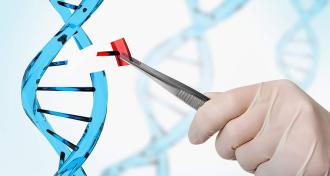 Genetics
GeneticsA CRISPR spin-off causes unintended typos in DNA
One type of CRISPR gene editor makes frequent and widespread mistakes, studies in mice and rice reveal.
-
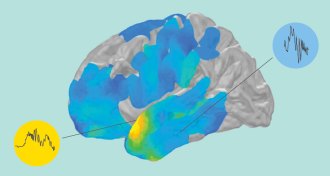 Health & Medicine
Health & MedicineRipples race in the brain as memories are recalled
A fast brain wave called a ripple often came before a person’s correct answer on a memory test.
-
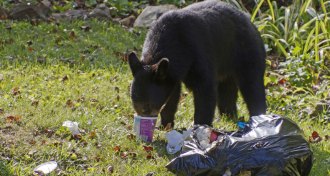 Animals
AnimalsBears that eat ‘junk food’ may hibernate less and age faster
Wild black bears snacking on leftovers of sugary, highly processed foods in Colorado show possible signs of faster cellular wear.
By Susan Milius -
 Life
LifeEating a lot of fiber could improve some cancer treatments
A high-fiber diet, which boosts the diversity of gut microbes, may make an immune therapy against skin cancer more effective.
-
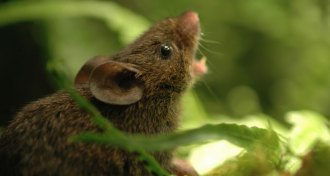 Neuroscience
NeuroscienceHow singing mice belt out duets
A precise timing system in the brain helps musical rodents from the cloud forests of Costa Rica sing to one another.
-
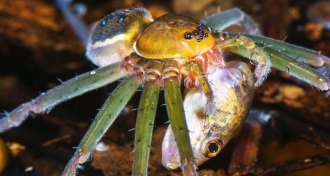 Animals
AnimalsWhat spiders eating weird stuff tell us about complex Amazon food webs
By documenting rare events of invertebrates eating small vertebrates, scientists are shedding new light on the Amazon rainforest’s intricate ecosystem.
By Jeremy Rehm -
 Health & Medicine
Health & MedicineWatching hours of TV is tied to verbal memory decline in older people
The more television people age 50 and up watched, the worse they recalled a list of words in tests years later, a study finds.
-
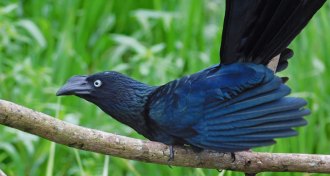 Animals
AnimalsThis parasitic cuckoo bird shows cheaters don’t always get ahead
Birds called greater anis that can slip extra eggs into other nests create a natural test of the benefits of honest parenting.
By Susan Milius -
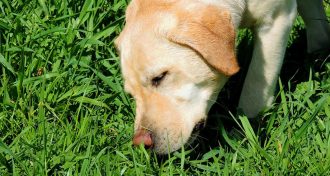 Genetics
GeneticsGenes might explain why dogs can’t sniff out some people under stress
Genes and stress may change a person’s body odor, confusing police dogs.